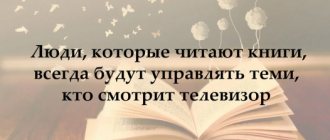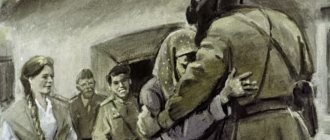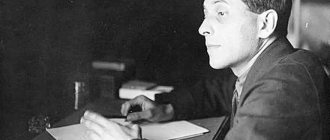Essay on the topic: “My favorite movie”
Essay on the topic: “My favorite movie.”
Plan:
1.The name of the film.
2. Interesting facts about the film.
3.Why do I like this film and my attitude towards the film.
There are a lot of films, cartoons, TV shows and interesting programs in our world. I decide to stick to films. People have come up with many innovations to make films. There are people who devote their lives to films, choosing the profession of composer, director, screenwriter or actor. But to create a film that audiences will like, you need to put in a lot of effort, and for a film to become loved, you need to work several times better than the standard. “Ice” is the same film that I loved and fits this criterion.
The film Ice was released in 2021. The director of the film was Oleg Trofim. The producers who filmed together had the idea of creating a musical a long time ago, but they decided to write a story about figure skating. The film contains a new film language, which everyone was really looking forward to. Calling a film a "musical" puts people off, so it would be more accurate to call it a "movie with musical numbers." Music plays a huge role in this film. Music tells many moments and reveals the essence. It conveys to us the mood of what is happening and gives us emotional reinforcement. The film can also be called a fairy tale, because it is terribly beautiful and quite fabulous in its essence. Almost all the numbers take us beyond the film and turn us into a fairy tale. The numbers were selected after the script was written, so some points were rewritten and improved, but the main idea did not change. What’s fabulous about this film is Nadezhda’s choice of personal life rather than sports.
The film itself makes you immerse yourself, gives great motivation for various victories in every sense. The film helps to understand that every person needs someone who will support. Indeed, Nadya might not have gotten back on her feet, but thanks to Sasha and hard work, she returned to big-time sports and continued what she loved. I liked the fact that the film clearly demonstrates the achievement of one’s goals and dreams. Little Nadya dreamed of learning to skate, knew all the Russian figure skaters and treasured a book about figure skating, that is, she had a great desire. And if a person wants, he will achieve everything. Her mother played a big role in turning Nadya’s life around. Mom gave the girl hope and always supported her. It was her mother who gave the girl the book that Nadya studied from after her mother’s death. Thanks to a wonderful coach who combined rigor and good nature, Nadya had excellent qualities for the great Ice Cup award, which many aspired to.
The humanism of the people in the film is amazing. When at the competition for the cup the people in charge of the music on the ice did not want to turn it on, the audience began to sing and the performance blossomed before our eyes. This episode in the film makes us remember and honor the humanity of the characters. I really liked this movie. I advise you to definitely watch it. Let it make your soul tremble and experience pleasure!
My favorite film (essay) creative work of students on literature
Essay
"My favorite film"
I want to talk about one good film. Maybe some will find it simple and outdated, because it was filmed a long time ago - in 1964. After this film, many other films about dogs were made, but it was the film “Come to me, Mukhtar!” was probably a pioneer in this topic, and I like him more than any others...
Much has been written and much has been said about the East European Shepherd dog. She amazes with her abilities and talents. There is no one equal to her in loyalty, intelligence, devotion... It was not for nothing that this particular dog, and even a German shepherd, performed military service. These are the dogs that still serve on the border of our country today. Next to the border guards, they protect our peaceful life.
The East European Shepherd always attracts the glances and attention of others. And the point here is not so much the beauty of a dog of this breed (although this cannot be taken away from it), its power and strength (this is not a lapdog or some kind of Chihuahua), but the respect for this breed that did not appear out of nowhere, but deservedly so.
So in the film “Come to me, Mukhtar” the guide Glazychev, played by the wonderful actor Yuri Nikulin, works in the police with a shepherd named Mukhtar.
Yuri Nikulin in this film amazes with his sincerity, there is no indifference in him. Only a great actor could play the role like that!
From the very beginning, Glazychev understood the feelings of a dog who was betrayed by a beautiful, but empty and soulless owner. Patiently, the hero persuades the dog to eat and not worry about such a loss.
A touching episode. When Glazychev brings Mukhtar home and, as if making excuses for his wife, says: “Here, we work together, but I’ve never had him at home.”
I understand Glazychev’s despair when it comes to writing off Mukhtar, because after being wounded in combat he became unfit for service. Glazychev had to go through dozens of offices to save Mukhtar.
I was struck by the trusting relationship between the handler and the dog. Glazychev talks to Mukhtar respectfully, knowing that the dog loves it. Here you can see the real male friendship of employees who are equal in relation to the work. Here we won't see cooing with a dog. Here the dog is a comrade and friend. True, Glazychev was reproached by his superiors in the film for “praising the dog not according to the regulations.” But the guide is convinced that he needs to speak to Mukhtar in a friendly manner, because he sees the dog as his faithful friend, who will cover him in difficult times. That is why he will not allow himself or anyone else to hurt the dog, to inflict another terrible wound of betrayal.
The film “Come to me, Mukhtar!” differs from all others who appeared later in its heartfelt sincerity, real feelings, without tearful sentimentality. And Mukhtar’s work is the most ordinary for a police dog, there are no special feats. Perhaps the detention of the dangerous criminal Frolov, which cost Mukhtar his health and, probably, his life...
The episode when Mukhtar finds the skins of rabbits that were stolen by the unlucky grandson of the grandmother, who turned to the police with a complaint, is watched with a smile. Here you can see the teamwork between the handler and the dog, who understand each other from half a word, from half a glance. The film, without embellishment, shows the abilities of this dog breed.
The film “Come to me, Mukhtar!” still remains on the screens of our country, it continues to live and excite the hearts of modern boys and girls.
I have no doubt at all that dogs of this breed are capable of understanding humans as well as is shown in the film. Many times I have heard stories from owners of such dogs. All these people became fans of this breed. It seems to me that it is impossible not to love such a dog.
Smart shepherd dogs are capable of becoming nannies for children, being protectors of their owners, and understanding not only commands, but also simple human speech. They find things and objects without much training: keys, leash, shoes, gloves; they seem to know what exactly the owner asks to bring.
I heard about a shepherd named Vega, she could swim and dive, get stones from the bottom of the river, knew many obligatory and optional commands; sometimes she simply amused people, putting on a real circus performance. And all this was done without shouts or commands, but simply at the request of the owner.
Listening to such stories, I thought that nothing was impossible for these dogs... Perhaps only one thing: they die very early, inflicting a deep emotional wound on those whom they loved so selflessly, for whom they lived; those who were served by loyal dog eyes, sensitive ears, a curious shiny nose and a faithful heart.
There are also a lot of soulless, callous people, such as Mukhtar’s owner in the film. They make a dog out of a beast capable of murder. I read G. Vladimov’s story “Faithful Ruslan.” This is the story of a guard dog, a German shepherd named Ruslan. People turned a smart dog into a cruel weapon.
Shepherd dogs should not be kept by people who are irresponsible, cruel, indifferent, who will play with them and throw them out into the street, or simply leave them, or simply forget the dog, and it waits, sitting by the road. Are there many such stories all over the country, are there not enough monuments to such dogs?.. Is there a limit to human irresponsibility?!
I really want every dog, whether purebred or a stray mongrel, to have a good owner, a booth and a bowl, “and there’s a sausage in the bowl.” Or maybe we should all take comfort in the fact that “all dogs go to heaven?..”
I think that not only a person raises a dog, but a dog also raises a person, instilling in him human qualities: kindness, responsibility, the ability to self-sacrifice, loyalty, caring, selfless love. My favorite movie teaches this too.
Concluding the essay, I will say that I have a dream that, I am sure, will come true someday and will make me happier and spiritually richer. I will have such a friend - an East European Shepherd dog. And I will call her Mukhtar - the same as the name of the heroic dog from the film “Come to me, Mukhtar!”
LiveInternetLiveInternet
“Ivan Vasilyevich Changes Profession” is a Soviet film comedy. Production of the Mosfilm film studio, 1973. Screen adaptation of M. A. Bulgakov’s play “Ivan Vasilyevich.” Box office leader in 1973 - over 60 million viewers. Inventor Alexander Sergeevich Timofeev (Shurik) creates a time machine and opens a portal to the time of Ivan the Terrible (“...to pierce space, penetrate time,” in his own words). However, due to a breakdown caused by a reed stuck in it, Tsar Ivan the Terrible and the house manager, Ivan Vasilyevich Bunsha, who is unusually similar to him, together with the thief from our time, Georges Miloslavsky, change places. Tsar Ivan the Terrible will have to get used to the modern world. And Bunshe and Miloslavsky survived during the time of Ivan the Terrible.
Interesting facts The American audience knows the comedy under the names “Ivan Vasilievich: Back to the Future” and “Ivan the Terrible: Back to the Future”. When filming the scene of the royal feast, Gaidai insisted that all the food be real and not fake, but the budget for the film did not include the costs of this. Then Gaidai, at his own expense, “procured” sturgeon and other delicacies, which were in short supply at that time. The royal table cost him 200 rubles. When the royal feast was filmed and the film was developed, someone discovered that someone had left a bottle of Borjomi on the table. The royal feast had to be completely re-shot from scratch. Tsar Ivan Vasilyevich the Terrible in modern Moscow in the film listens on a tape recorder (except for Vysotsky’s “Eh, once again...”) to a song about hares “But we don’t care...” performed by Yuri Nikulin from Gaidai’s previous film - The Diamond Arm. To Bunshi’s question “Excuse me, what is your name and patronymic?” the queen replies: “Marfa Vasilievna I...” This can only be Marfa Vasilievna Sobakina, who was the wife of Ivan IV the Terrible for only 15 days. Thus, Georges Miloslavsky and Ivan Vasilyevich Bunsha were in ancient Moscow on one of the days between October 28 and November 12, 1571. On November 13, Marfa Sobakina died. However, the film takes place in the summer. In addition, it is known that almost immediately after the marriage, Martha became seriously ill and hardly participated in the feasts as queen. The Crimean Khan really played pranks on the Izyum Highway in 1571. He was so naughty that he burned Moscow in May 1571. The following year, the Crimean Khan was defeated at the Battle of Molodi. The Swedish ambassador speaks not Swedish, but German (which corresponds to the text of Bulgakov's play). Scenes of the chase for “aliens from the future” were filmed in Rostov the Great, Yaroslavl region - the white stone Kremlin of Rostov, not Moscow. Shurik’s apartment was located at 17/19 Novokuznetskaya Street. The episode of purchasing the transistors needed to repair the time machine was filmed in the Radiotekhnika store, which was located in this house. In Shurik’s kitchen, Ivan the Terrible asks: “Did the klyushnitsa make vodka?” In the Kremlin, in the Sytny Palace, there was a key chamber, or the Stick Chamber. In the Stick Chamber sat the Steady Stick Players. In the clubhouse they “sat order vodka,” that is, tinctures produced by order of the tsar. An interesting fact about the alleged product placement of Marlboro cigarettes during Miloslavsky’s performance of the song “Suddenly, like in a fairy tale, the door creaked” was noticed by many, but this was not real “hidden advertising” - not a penny was paid for this obvious display of a pack of cigarettes. Just like Sberbank of the USSR, which Miloslavsky “advertises” in the scene of the robbery of Shpak’s apartment. Rumors circulated and continue to circulate online that Gaidai acted as a lighting technician on the set. However, for those who are familiar with Gaidai’s real appearance, it is easy to understand that there is hardly anything in common between these two people. Movie bloopers In the scene of the robbery of Shpak’s apartment, Milovslavsky first holds State Loan bonds, and in the next frame he shows the audience bundles of banknotes. In the scene of interrogation by police officers, Ivan Vasilyevich, when asked about the year of birth, answers: “One thousand five hundred and thirty-third from the Nativity of Christ,” although Ivan the Terrible was born on August 25, 1530, and the chronology “from the Nativity of Christ” was introduced by Peter I only in 1700. Before this, Rus' used chronology “from the creation of the world.” Thus, Ivan Vasilyevich’s answer should have sounded like “Summer seven thousand thirty-eight from the creation of the world.” The scepter and orb that Bunsha holds in his hands (and which are depicted on the icon), as a symbol of royal power, appeared a hundred years later than the events taking place, in the 17th century. The police arrive to investigate a burglary in a traffic police car. One of the ambulances begins its journey from the main entrance of the Ostankino television center. In the elevator (“Walled up, demons!”) the king crosses himself with three fingers. Until 1653, Orthodox Christians crossed themselves with two fingers. During interrogation, Ivan Vasilievich says that he took Revel, but this is historically incorrect: for about two months Revel was under siege by the army of Ivan the Terrible, but was never taken. When an army goes to war, we see beardless and mustacheless soldiers, although in those days it was forbidden for a commoner to shave off facial hair. At the beginning of the film, it is clear that the aquarium in engineer Timofeev’s apartment is not working, there is muddy water in it and there are no fish. In the middle of the film we see the same aquarium with clean water and swimming fish, although Shurik and his wife were not in the mood for it. Shurik’s apartment was located on Novokuznetskaya Street, but Ivan the Terrible, going out onto the balcony of his apartment, said “Lepotaaa!”, overlooking the New Arbat (then Kalininsky Prospekt) and the CMEA building from the high-rise building No. 26 (there used to be a Melodiya store there). “Overseas caviar, eggplant” was brought to Russia in the 17th century from Iran, that is, later than the events described. It is interesting that on the royal table there was not eggplant caviar, but squash caviar. Quotes from the movie
Everybody dance!!! I demand that the banquet continue! Why did you offend the noblewoman, you stinker! Hello, boyar! Take the demons alive! - My life... - What is your life, you stinking dog! Leave me, old lady - I'm sad... - Last name? - We are Rurikovichs! Walled up... Walled up, demons! This is what the life-giving cross does! Boriska for the kingdom?! Black caviar... Red caviar... Overseas caviar - eggplant! What are you hinting at, royal face?! The housekeeper made vodka... Fuck you! ... Fuck you again. Human! Man! Waiter! Kidneys once for the queen! Lepota!








